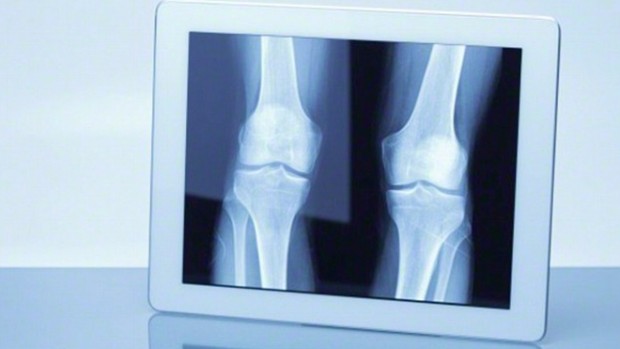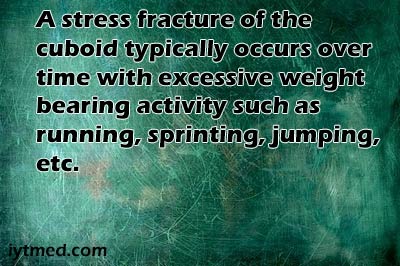All individuals desire to keep their bones strong and healthy for their entire lifespan. This is because bones have a vital function in providing structure, safeguarding organs, and aiding in motion. Unfortunately, as we get older, our bone density tends to decline, leaving us more susceptible to fractures and ailments such as osteoporosis.
In order to prevent bone loss and maintain bone health, it is important to understand the factors that affect bone mass and take proactive steps to strengthen our bones. This article will discuss the various factors that impact bone mass, including genetics, diet, exercise, and lifestyle choices.
The paragraph offers practical advice and techniques for developing strong bones in childhood and adolescence, preserving bone health in adulthood, and preventing bone loss as we age. By understanding the right information and adopting beneficial habits, it is feasible to enhance bone density and decrease the likelihood of fractures and bone-related issues at any stage of life.
Factors Affecting Bone Mass
There are several factors that can affect bone mass, both positively and negatively. Understanding these factors can help individuals take proactive steps to maintain and improve their bone health.
- Genetics: Genetics plays a significant role in determining bone mass. Some individuals may inherit stronger bones, while others may have a genetic predisposition to lower bone density. However, genetics does not dictate one’s bone health entirely, as lifestyle factors also play a crucial role.
- Diet: To keep bones healthy, it is important to have a well-rounded diet that includes enough calcium and vitamin D. Calcium is necessary for strong bones, and vitamin D helps the body absorb calcium. Some foods that are high in calcium include dairy products, leafy greens, and fortified foods. Vitamin D can be obtained from sunlight or taken as supplements or found in foods like fatty fish and fortified products.
- Exercise: Activities that involve bearing weight, such as walking, jogging, and promote the growth and density of bones. Additionally, resistance exercises like weightlifting can be advantageous for maintaining bone health. Consistently engaging in physical activity aids in preserving strong bones and decreasing the likelihood of developing osteoporosis.
- Hormonal Balance: The balance of hormones like estrogen and testosterone is essential for keeping our bones healthy. When there is an imbalance, it can cause bone loss. A good example is how women after menopause have lower estrogen levels, and this can cause their bones to weaken more quickly. It’s crucial to consult a doctor to ensure our hormones stay balanced.
- Lifestyle Choices: Certain choices in how we live our lives can have a detrimental effect on the strength of our bones. Activities such as smoking, alcohol intake, and prolonged use of specific medicines, like corticosteroids, can undermine our bones, making them more likely to break. It is crucial to prioritize making healthy lifestyle decisions to safeguard the health of our bones.
- Medical Conditions: Certain medical conditions, like osteoporosis or hormonal disorders, can directly affect bone mass. Managing these conditions with proper medical care and following recommended treatment plans is crucial for maintaining bone health.
By understanding these factors and making conscious choices, individuals can take control of their bone health at any age. Eating a nutrient-rich diet, staying physically active, maintaining hormonal balance, and making healthy lifestyle choices are all important steps in boosting bone mass and preventing bone loss.
Building Strong Bones in Childhood and Adolescence
During childhood and adolescence, it is crucial to focus on building strong bones, as this is the period of peak bone mass development. Incorporating healthy lifestyle habits can lay the foundation for strong and robust bones in adulthood. Here are some key factors to consider:
- Nutrition: Providing a well-balanced diet rich in calcium and vitamin D is essential. Calcium can be found in dairy products, leafy greens, and fortified foods, while vitamin D can be obtained from sunlight exposure or supplements. Including sources of protein and other important nutrients is also important for bone health.
- Physical Activity: Encouraging regular physical activity, particularly weight-bearing exercises like running, jumping, and sports, helps stimulate bone growth and increase bone density. Activities such as cycling and swimming can also be beneficial for overall fitness but should be complemented with weight-bearing exercises.
- Limit Sedentary Behaviors: Reducing sedentary behaviors, such as excessive screen time and sitting for long periods, is important for bone health. Encouraging outdoor play and active hobbies can contribute to stronger bones and overall physical health.
- Avoidance of Tobacco and Alcohol: Educating children and adolescents about the harmful effects of smoking and alcohol consumption on bone health is crucial. These habits can weaken bones and increase the risk of fractures.
By emphasizing these factors, parents and guardians can help children and adolescents build strong bones and set a solid foundation for long-term bone health.
Maintaining Bone Health in Adulthood
It is extremely important to prioritize the care of our bones as adults to prevent bone loss and lower the chances of fractures. Let’s highlight a few essential tactics to consider in achieving this goal:
- Balanced Diet: To maintain strong and healthy bones, it is essential to have a nutritious diet that includes an adequate amount of calcium, vitamin D, and other important nutrients. It is recommended to include dairy products, green leafy vegetables, and fortified foods in your meals. If necessary, you can also consider taking supplements.
- Regular Exercise: Participate in activities that put weight on your bones, like walking, jogging, or lifting weights, to encourage bone growth and keep your bones strong. Including strength training exercises in your routine is also advantageous for supporting bone health.
- Quit Smoking: If you smoke, quitting is essential for maintaining strong bones. Smoking reduces bone density and increases the risk of fractures.
- Stop Alcohol Consumption: Alcohol intake can lead to bone loss and increase the risk of osteoporosis. Stopping is key to maintaining bone health.
- Fall Prevention: Take steps to prevent falls, as they can lead to fractures. Ensure your home is well-lit, remove tripping hazards, and use handrails and grab bars where needed.
By implementing these strategies, you can help maintain strong and healthy bones throughout adulthood. Remember, it’s never too late to prioritize bone health.
Preventing Bone Loss in Older Age
As we age, maintaining strong and healthy bones becomes increasingly important. Here are some strategies to prevent bone loss in older age:
- Calcium and Vitamin D Intake: It is important to consume enough calcium and vitamin D to ensure strong and healthy bones. Make sure to include calcium-rich foods like dairy products, leafy greens, and fortified foods in your diet. If your doctor suggests, you can also consider taking supplements.
- Regular Exercise: To promote bone growth and preserve bone density, participate in physical activities that put pressure on your bones, such as walking, jogging, or dancing, as well as strength training exercises.
- Fall Prevention: It is important to take measures to avoid falls as they can result in fractures. Make sure your home is clear of things that could trip you, utilize handrails and grab bars, and think about putting non-slip mats in the bathroom.
- Bone Density Testing: Regular bone density testing can help identify whether you’re at risk for osteoporosis or bone loss. Talk to your doctor about when and how often you should undergo a bone density test.
- Medications if Needed: In some cases, medication may be prescribed to prevent bone loss or treat osteoporosis. Consult with your healthcare provider to determine if medication is necessary for you.
By implementing these strategies, you can significantly reduce the risk of bone loss and maintain strong bones as you age. Remember to consult with a healthcare professional for personalized advice and guidance.
Conclusion
Maintaining strong and healthy bones is essential at every stage of life. Building strong bones in childhood and adolescence sets the foundation for preventing bone loss in later years.
Adequate calcium and vitamin D intake, along with regular exercise, play a crucial role in promoting bone health. Incorporating weight-bearing exercises and strength training into your routine can stimulate bone growth and maintain bone density.
Fall prevention measures, such as removing tripping hazards and using handrails, are vital in preventing fractures. Regular bone density testing can help identify early signs of bone loss and enable timely intervention. In some cases, medication may be prescribed to prevent bone loss or treat osteoporosis.
By following these strategies, individuals can significantly reduce the risk of bone loss and maintain strong bones throughout their lives. Remember, it’s never too late to start taking care of your bones!









